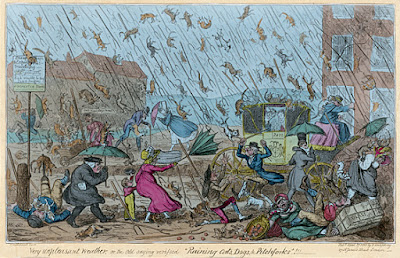Research or research? Where does the emphasis lie? When I'm chatting with my friend Tony, I emphasise the second syllable; with others, i.e. normal people 😀 it's REsearch. Is one correct?
English is a funny language because there are no written accents to show correct syllabic (as distinct from syllabub)(mm) emphasis.
Compare the French. Number one, they have the Académie Française, which tells the minions what to say and how to say it. It publishes the Dictionnaire de l'Académie française. Very bourgeois. We Brits have the BBC.
Number two, what the French do have is accents: acute, grave, circumflex and diarhesis or trema. And the occasional cedilla. The most interesting thing I could find out about the acute accent is that it can only be used with the letter e and changes its pronunciation from uh to eh. As in liberté, égalité, fraternité. Which, as it happens, emphasises that final syllable; so why not just say that?
However, the grave accent on the letter e also makes the eh sound, as in cusinière (for those without GCSE French that's a female cook; the French are definitely not gender-woke). So why the duplication? It's that Académie again; nothing better to do.
The other French accents are even more confusing. And not strictly about emphasis, which was my original point.
So let's move on to Spanish. There are two key points: (1) every Spanish word has one and only one stress (2) If a word ends with a consonant other than ‘s’ or ‘n’, the final syllable is stressed (oxytone words), otherwise the penultimate syllable is stressed (paroxytone words). Simples. Erm, unless a syllable has an acute accent, in which case it takes the stress - as in propósito (purpose).
I have an O Level in Spanish: good choice, Nigel.
We poor Brits have none. Is obfuscation a trait of the British? Perfidious Albion; say one thing, mean another: "Oh you didn't understand the emphasis, Michel. We were not combining Great Britain and Northern Ireland, we were talking about farmers and their combine harvesters." "Mais bien sûr [there's that circunflex], Boris. Nous vous croyons."
Imagine yourself as a three year old struggling with some early reading.What to make of:
"I present you with a present"
"I am recording your speed records"
"I am going to subject you to the subject of heteronymity"
"I will relay the result of the relay race"
"I refuse to take out the refuse"?
Better:
"I presént you with a présent"
"I am recórding your speed récords"
"I am góing to subjéct you to the súbject of heteronýmity"
"I will reláy the resúlt of the rélay race"
"I refúse to take out the réfuse"
Símples.
I think I will form the Académie Nigelaise.
I know, you are disappöinted becäuse you thöught this post would be aböut régional Énglish áccents. So, as a sop to you. here's one: [I know, the system is a work in progress]
Gan canny or we'll dunsh summick
Your guess is a good as mine.






